Complete Dumbbell Incline Chest Press Exercise Guide
Learn everything about Dumbbell Incline Chest Press exercise including proper form, muscles worked, benefits, variations, alternatives, and common mistakes to avoid.
Muscles Worked & Equipment
Primary Muscle
The main muscle group targeted by this exercise, receiving maximum activation during the movement.
Secondary Muscles
The main muscle group targeted by this exercise, receiving maximum activation during the movement.
The main muscle group targeted by this exercise, receiving maximum activation during the movement.
Equipment Needed
This exercise requires dumbbells equipment to be performed safely and effectively.
This exercise requires incline bench equipment to be performed safely and effectively.
Muscle Categories
This exercise primarily targets muscles that belong to the upper pectoralis category, contributing significantly to overall development.
This exercise primarily targets muscles that belong to the shoulders category, contributing significantly to overall development.
This exercise primarily targets muscles that belong to the triceps category, contributing significantly to overall development.
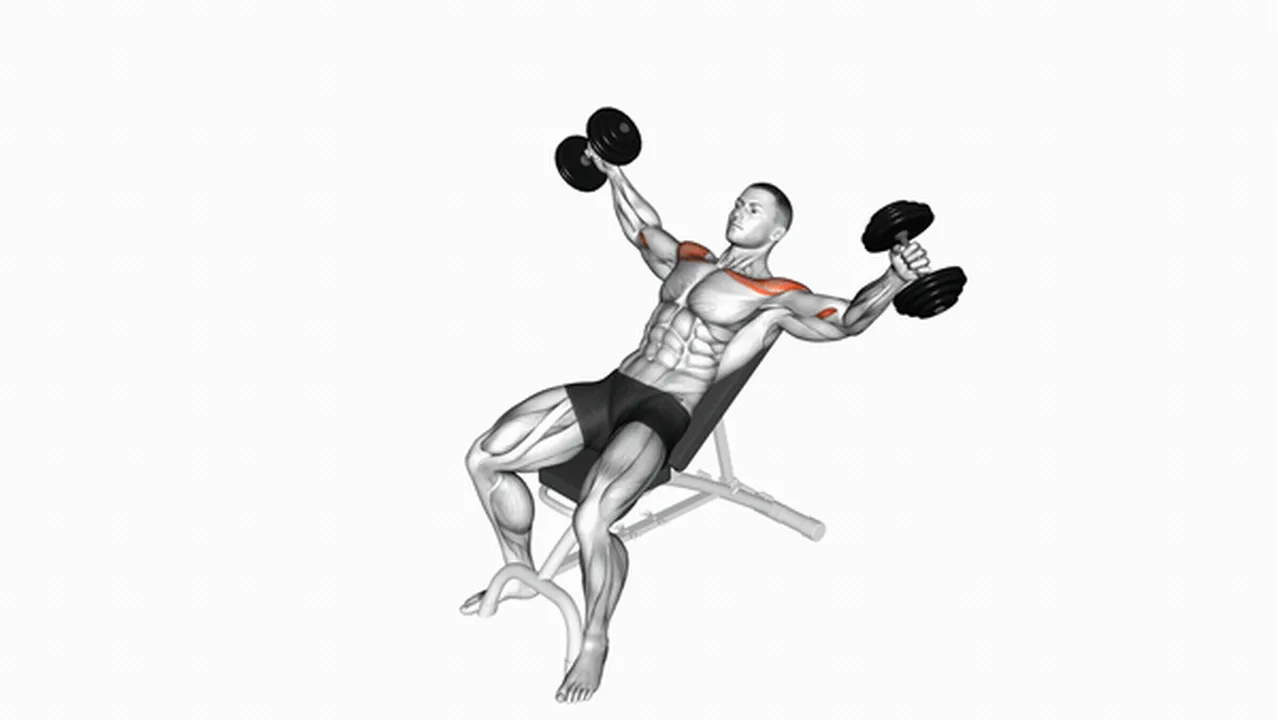
Introduction
1.
It mainly works your chest muscles, but also your shoulders and triceps.
2.
This exercise focuses on the upper part of your chest muscles, giving them a good workout.
3.
Using dumbbells instead of a bar helps you use more muscles to keep your balance. This improves your overall strength and coordination.
4.
It's a good exercise for all fitness levels, from beginners to experienced weightlifters.
5.
Adding incline dumbbell chest presses to your workouts can help you build stronger, more defined muscles in your upper body.
 Zylo AI
Zylo AI
Free Calorie
Counter
App





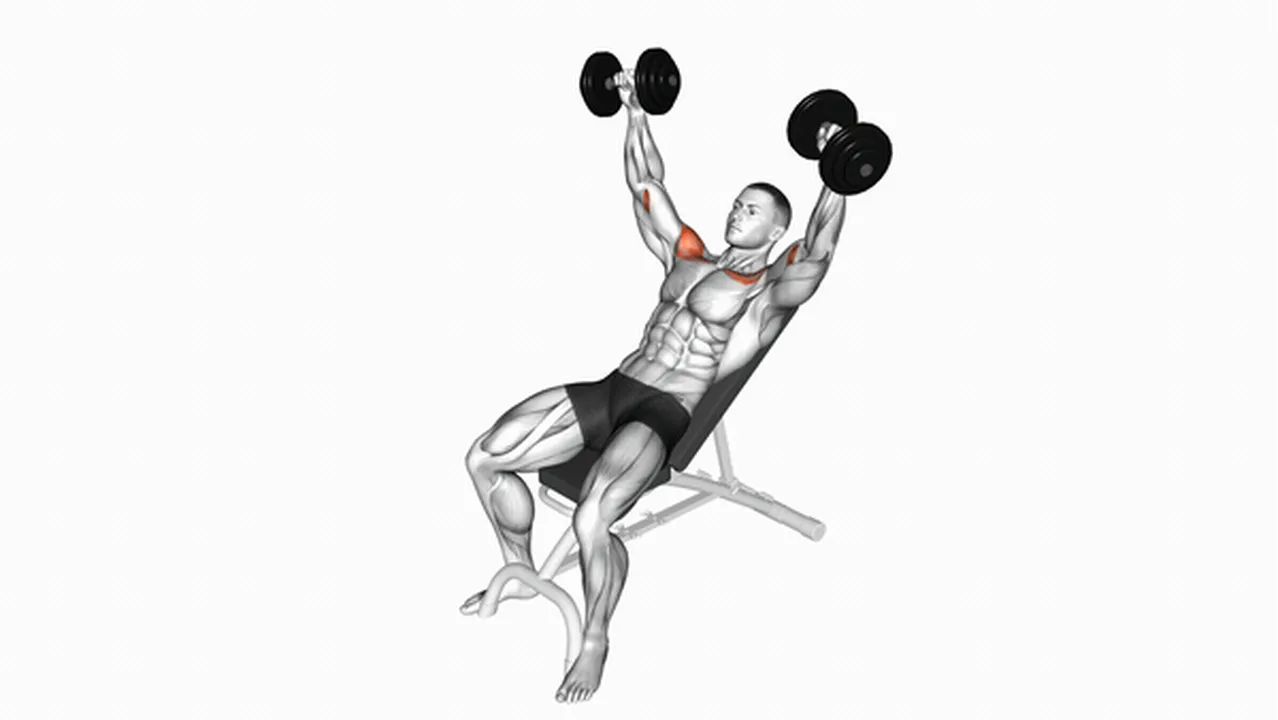
What are the benefits of the Dumbbell Incline Chest Press?
1.
More Muscle Work: Using dumbbells instead of a barbell makes your muscles work harder because you have to keep the weights steady yourself.
2.
Safer for Your Shoulders: Doing the exercise on an incline is gentler on your shoulders, helping to prevent injuries.
3.
Easy to Do Anywhere: You can do this exercise at home or at the gym because dumbbells are easy to find.
4.
Good for Getting Stronger and Bigger Chest Muscles: This exercise is great for building strength and size in your chest. It's a really effective way to improve your upper body.
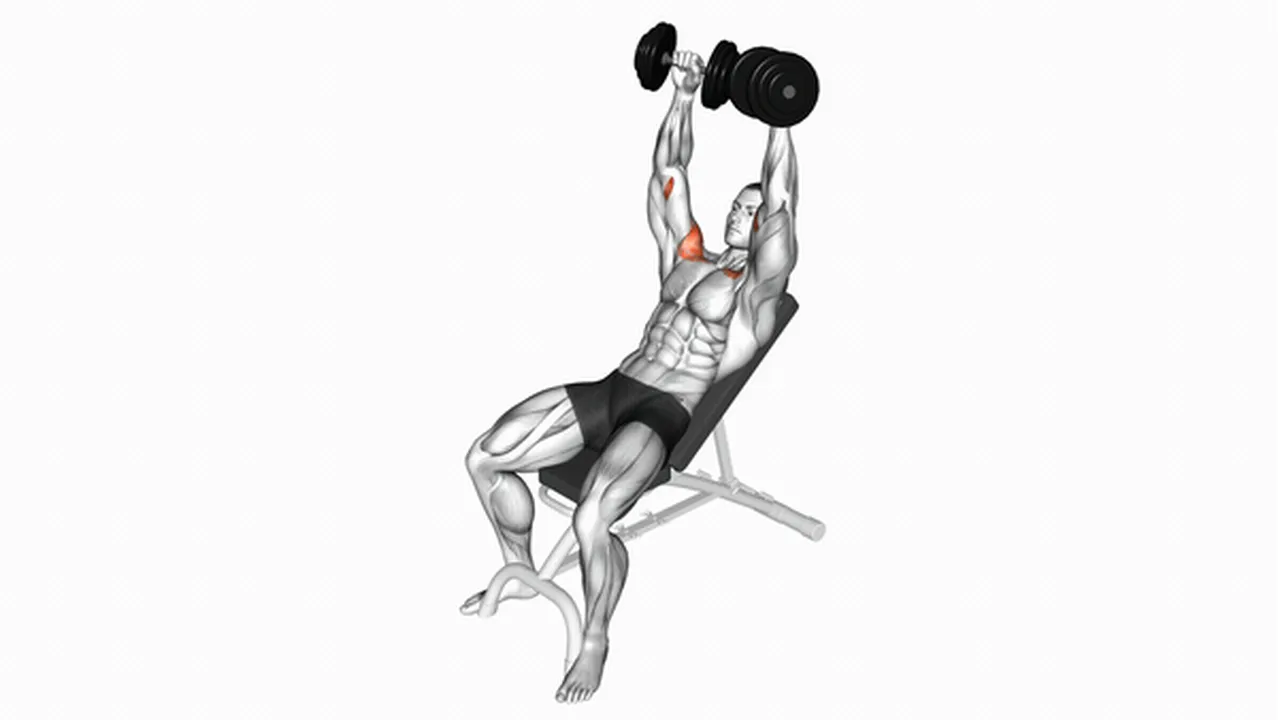
How to do the Dumbbell Incline Chest Press?
1.
Grab your dumbbells: Hold a dumbbell in each hand, at shoulder level. Your palms should face each other.
2.
Engage your body: Tighten your stomach muscles to keep your body stable. This helps protect your back and makes the exercise more effective.
3.
Press upwards: Slowly push the dumbbells upwards until your arms are straight, but don't lock your elbows. Keep a slight bend in your elbows.
4.
Controlled lowering: Slowly bring the dumbbells back down to the starting position. Don't just drop them! This controlled movement helps build muscle.
5.
Repeat the process: Do this as many times as your workout plan suggests. Listen to your body and stop if you feel pain.
6.
Important tip: Keep your elbows slightly bent throughout the exercise. Avoid locking your elbows at the top to keep your chest muscles working and prevent injury.
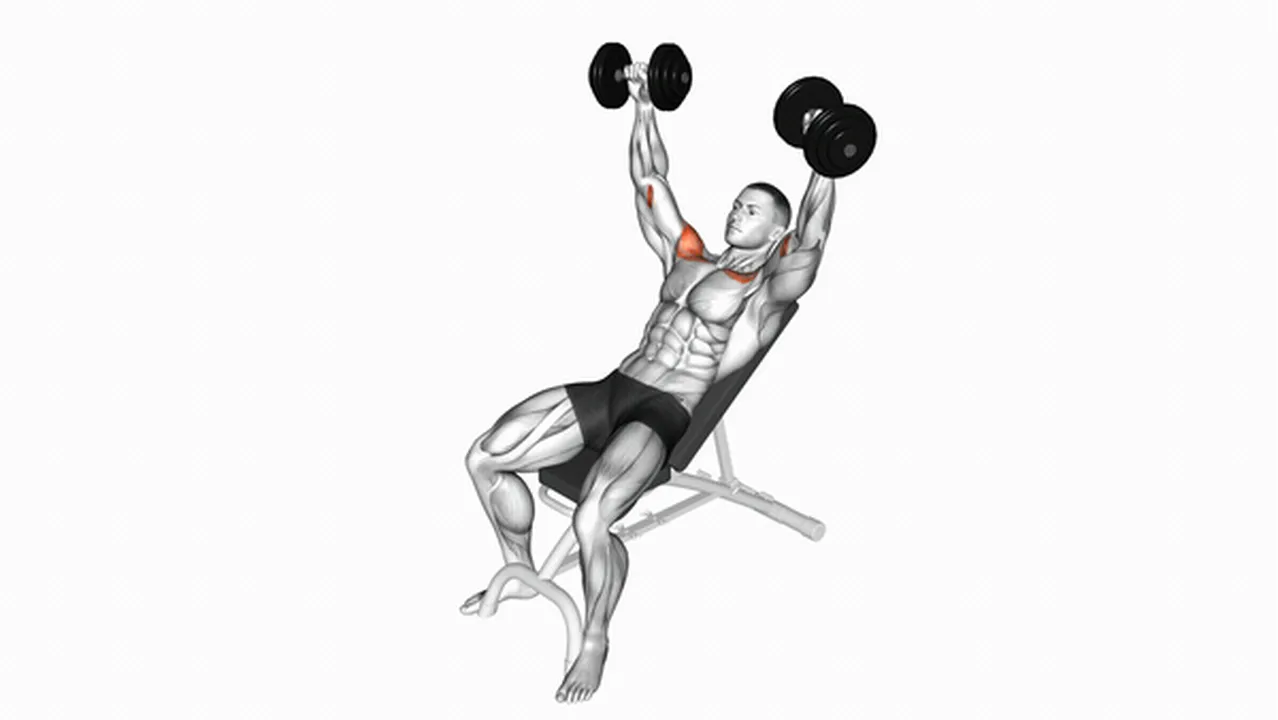
Common Dumbbell Incline Chest Press Variations
1.
Dumbbell Incline Hammer Press: This exercise uses dumbbells, but you hold them with your palms facing each other (a 'hammer' grip). This helps work your upper chest muscles and triceps, but it's gentler on your shoulders than a regular incline press. It's good for building strength and keeping your muscles balanced.
2.
Dumbbell Incline Palm-in Press: Similar to the hammer press, but you hold the dumbbells with your palms facing each other. This grip helps to really focus on your shoulder muscles and makes your chest work harder. It can improve your chest definition and overall strength.
3.
Cable Incline Bench Press: This uses a cable machine instead of dumbbells. The cable keeps your muscles working hard the whole time you're doing the exercise, which is good for building muscle. It's also easier on your joints than some other chest exercises.
4.
These exercises all work your chest, but they do it in slightly different ways. Try them all and see which ones you like best and which ones help you build the most muscle!
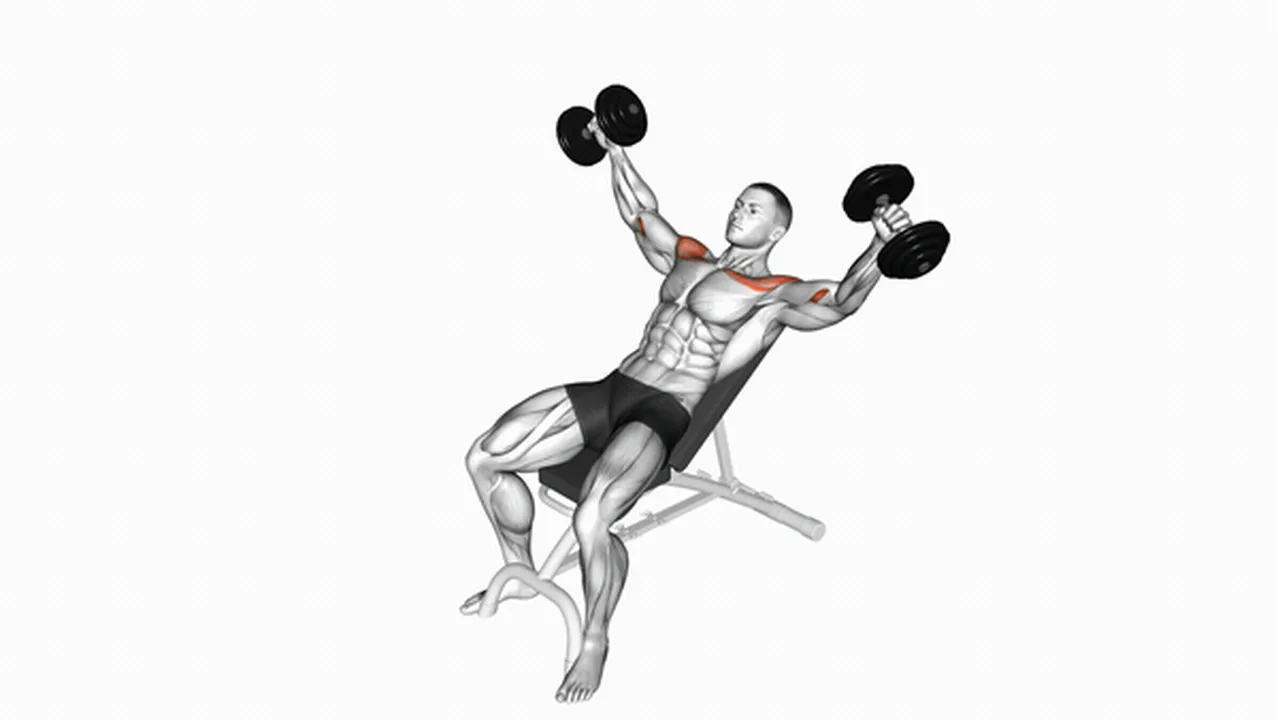
Alternatives to the Dumbbell Incline Chest Press
1.
Standard Dumbbell Incline Bench Press: This is like the classic incline press but with dumbbells. The dumbbells let your arms move more freely, working your chest muscles more thoroughly.
2.
Dumbbell Incline Flyes: This move really stretches your chest muscles. It's great for shaping your chest and making it look more defined. Focus on a slow, controlled movement.
3.
Dumbbell Incline Hammer Press: Hold the dumbbells with your palms facing each other. This works your chest and triceps, and it also helps improve your balance and coordination.
4.
Dumbbell Incline Palm-In Press: This is similar to a regular incline press, but with your palms facing each other. It works your chest, shoulders, and triceps in a slightly different way.
5.
Experiment to find what's best for you! Each variation works your chest muscles a little differently, so try them all to see which ones you like and which ones help you reach your fitness goals.
 Zylo AI
Zylo AI
Free Calorie
Counter
App





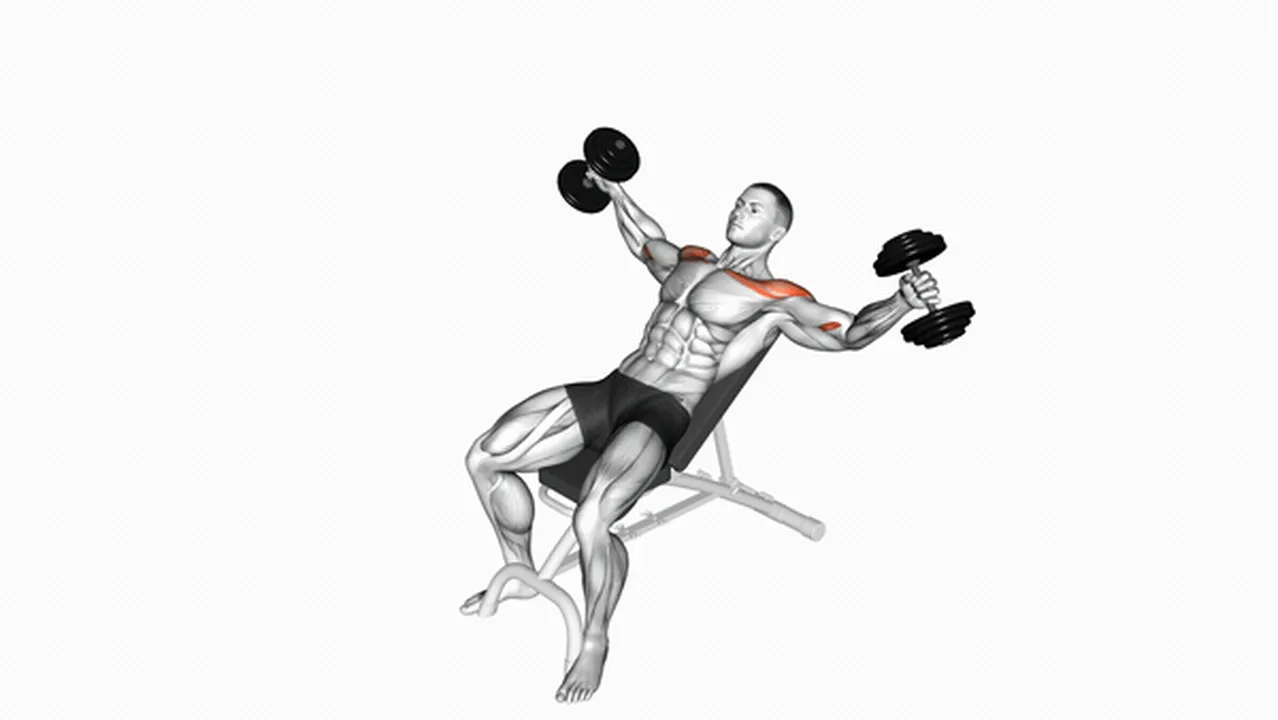
Common mistakes during the Dumbbell Incline Chest Press
1.
Control the dumbbells: Don't let the dumbbells bounce off your chest. Slowly lower the weights, feeling your chest muscles working. This helps you build muscle and prevents injuries.
2.
Set the bench at the right angle: The bench should be tilted at a 30-45 degree angle. This angle is best for working your chest muscles. If the angle is wrong, you might work other muscles more than your chest.
3.
Keep your feet flat on the floor: This helps to keep your body stable and supports your back during the exercise. It makes it easier to control the weights and avoid injury.
4.
Maintain a steady breathing pattern: Inhale as you lower the dumbbells and exhale as you push them back up. This helps you to control the movement and maintain proper form throughout the exercise.
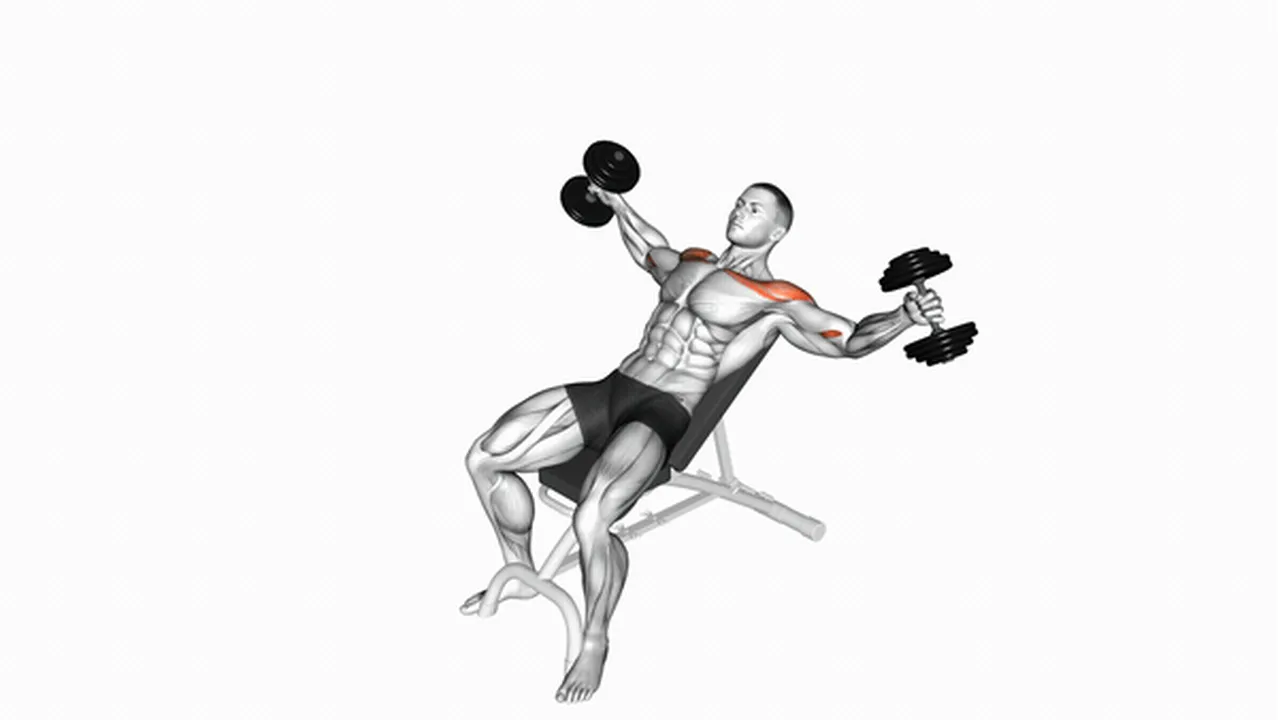
Takeaway
1.
This exercise helps make your whole upper body stronger.
2.
Correct form is really important to get the best results and avoid injuries. Lie on an incline bench with your feet flat on the floor. Hold a dumbbell in each hand, keeping your elbows slightly bent. Lower the dumbbells slowly until they're just above your chest. Push the dumbbells back up to the starting position. Control the weight throughout the movement.
3.
Common mistakes to avoid include: using too much weight (which can lead to bad form), arching your back too much (this puts strain on your lower back), and not controlling the dumbbells as you lower and raise them (this reduces the effectiveness of the exercise and increases risk of injury).
4.
To keep your workouts interesting, try different variations. You can change the incline of the bench (steeper incline targets the upper chest more) or use different grips (a closer grip works the inner chest more, a wider grip works the outer chest more).
5.
If you don't have dumbbells, there are other exercises you can do to work your chest. Push-ups are a great bodyweight alternative, and you can also use a barbell for incline bench presses if you prefer.
6.
Remember to start slowly and gradually increase the weight or resistance as you get stronger. Always listen to your body and stop if you feel pain.
 Zylo AI
Zylo AI
Free Calorie
Counter
App





Disclaimer: The routines and schedules featured on our website are for informational purposes only and do not constitute medical or professional advice. Individual preferences, goals, and daily routines may vary significantly. Please note that some product links within our content are affiliate links. While not all routines have been explicitly endorsed by the individuals mentioned, we strive to ensure the accuracy and timeliness of the information we provide.
Disclaimer: Zylo AI(BR) does not provide medical advice, diagnosis, or treatment. Any information published on this website or by this brand is not intended as a replacement for medical advice. Always consult a qualified health or mental health professional with any questions or concerns about your mental health.
